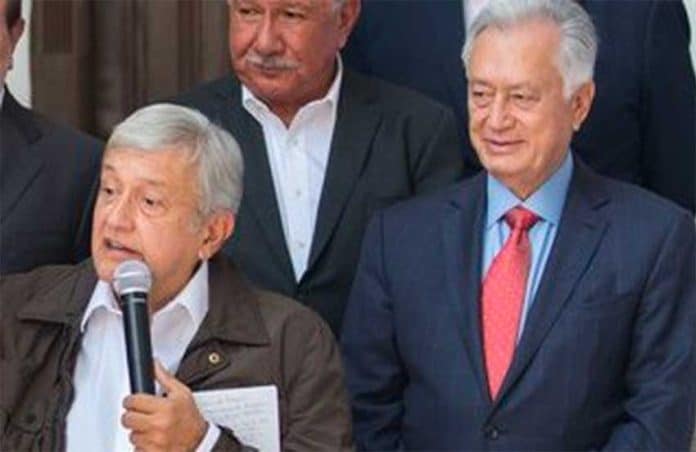President-elect Andrés Manuel López Obrador says his government will cancel debts owed to the Federal Electricity Commission (CFE) by people in “civil resistance” against the public utility.
“There will be a clean slate,” the leftist political veteran said at an event in Palenque, Chiapas, explaining that those who have opposed “excessive charges” on their power bills by leaving them unpaid “will not pay a single peso.”
The so-called civil resistance movement first began in 1995 in states including López Obrador’s home state of Tabasco as well as Chiapas, Veracruz, México state and Mexico City.
Debts of 43.3 billion pesos (US $2.3 billion) have since accumulated, according to freedom of information data.
López Obrador said that forgiving the “civil resistance” debt was a campaign promise but stressed that the “clean slate” applied from July 1 — the day he won the presidential election in a landslide — rather than December 1, when he will be sworn in as president.
The president-elect also spoke out in defense of Manuel Bartlett, who he has tapped to be the next head of the CFE.
“. . . He [Bartlett] has been defending the national electrical industry for many years, that’s why I decided to propose him to be the director of the Federal Electricity Commission,” López Obrador said.
Others, however, have been highly critical of the appointment of the 82-year-old senator and former governor of Puebla who also served as secretary of the interior and secretary of education in successive Institutional Revolutionary Party (PRI) administrations in the 1980s and early 1990s.
Bartlett has been an outspoken critic of the 2013 energy reform, charging that it violates basic principles of the constitution because it eliminates the exclusivity of the state to exploit energy resources, lacks defining proposals and subordinates national, economic and political security to the interests of foreign nations.
Analysts from investment bank Barclays Capital said in a report that those views don’t align with the vision of investors and that his appointment as CFE chief could have a negative impact on markets in the longer term.
“We are uncertain what the priorities of Mr. Bartlett as CEO of the CFE will be but we believe that his appointment may not be a good sign for international investors. In addition, for us, his reiterated opinions about the energy reform and the role of the CFE are disappointing signs,” the analysts said.
Bartlett himself said in a radio interview yesterday that those critical of his appointment as the next head of the CFE belong to a minority of people who don’t want him to rescue the state-owned company.
Many of those critics, he said, blame him for electoral fraud committed in the 1988 presidential election.
But he denied any wrongdoing, instead blaming others including Carlos Salinas de Gortari who was declared the winner over Cuauhtémoc Cardenas despite clear evidence that fraud had taken place.
Bartlett said that he is committed to “bringing order” to the CFE, which he charged is currently a “disaster” because of its poor management.
Today, he reiterated that position, saying that he wants the CFE to be “a company that works” rather than a “dying company” that has to buy energy.
He said that his approach to leading the company would not be to wage war against its current management but to find out its current financial situation and work out what needs to be done to turn it into a world class company.
With regard to López Obrador’s civil resistance debt cancelation plan, Bartlett said that its aim was to guarantee the supply of electricity to Mexico’s poorest, adding that “we have to make a great effort to establish rates that can be paid by people who don’t have resources.”
The president-elect last week announced a plan to “rescue” the energy sector, which includes building a new refinery, upgrading the existing ones and eliminating excesses of the petroleum workers’ unions.
Source: El Financiero (sp), Milenio (sp)
